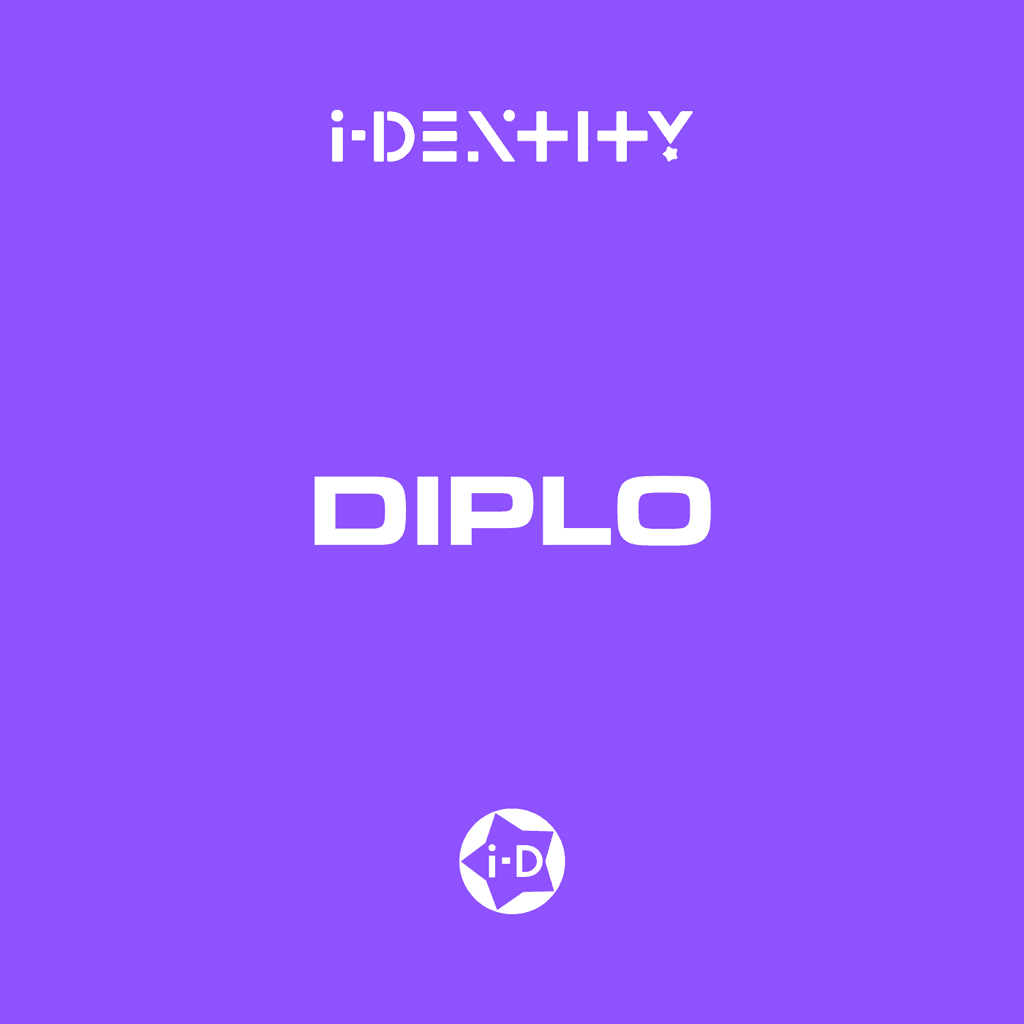With most of the guests on i-Dentity this season, their relationship to subculture has been immediately evident on first hearing their name. In the case of this week’s guest, however, it would be fair to say that his reputation in the cultural mainstream proceeds that: Diplo. While he’s best known today as one of the world’s most prolific producers and DJs, dig a little deeper into his biography, and you’ll discover a pretty extensive relationship with the underground.
That extends back to his youth in Daytona Beach – a city on the northern coast of Florida known as a spring breakers; hotspot and the home of NASCAR – where he first started DJing pool parties and parking bikes during the city’s Biker Week, a national gathering of biker gangs from across the country.
These early experiences in Daytona Beach’s fringes, paired with upbringing in a diverse Floridian community, whetted Diplo’s appetite for culture beyond the American mainstream. That only grew on his moving to further on moving to Orlando, a city with a thriving subcultural scene on account of its large youth population, a consequence of the gigantic world-famous theme parks it’s home to. “Orlando had a huge subculture,” he says. “House music and breakbeats were also the big thing in Florida. Orlando was actually a really big city for international DJs on US tours. They’d come here after playing New York or Chicago.”
It was in Philadelphia, a city Diplo initially moved to to study cultural anthropology at university, that Diplo became an active player in the subcultural spaces he’d till then been a participant in. In 2003, he founded Hollertronix, a party – and later mixtape series – that sought to mediate the implicit divides in the city’s scene. “Florida had this diversity that no one ever really talked about. Everybody kind of hung out together… but when I got to Philly, I realised, ‘Oh, damn, there’s segregation everywhere here’,” he recalls. “In the black clubs, you’d hear more house music, in the white clubs, it was all hip hop and pop,” he continues, “and then there were the indie rock kids who danced to New Order, techno and Soulwax at this transit.
Quickly, the party became a crucible for the hodgepodge of sounds that, for Diplo, was a native musical vernacular on account of his diverse upbringing. “I incorporated a Soulwax sound with hip hop from the South, like David Banner, Lil Jon and Three 6 Mafia, playing records that went between house and hip hop the whole time,” he recalls, noting how Hollertronix’s rapidly swelling reputation made it a destination party for an international coterie of at-the-time underground artists – the likes of 2ManyDJs, Mark Ronson and MIA appearing on the billings alongside leading figures in the Philadelphia rap scene.
Beyond familiar source material, the parties also became forums for the introduction of novel sounds. “I would introduce weird things I found on the internet,” Diplo says, “Brazilian music was really big for me at the time, because I was finding these funk carioca records that would sample The Smiths or Madonna, then just have this chaotic Portuguese screaming layered on top. I played a few of these edits I made and people loved them.”
While Hollertronix floated Diplo as one of the buzziest figures in American electronic music culture at the time, what cemented it was Mad Decent, the record label he founded in 2006. Initially a natural development of Hollertronix’s parallel mixtape series, it quickly morphed into a conduit for Diplo to platform and distribute the eclectic range of sounds he was bringing to the parties’ ever-increasing audiences.
What cemented his reputation globally, though, was the 2007 release of ‘Paper Planes’, the seminal MIA track – co-produced by Diplo – that became an era defining anthem on account of its feature on Oscar-winning blockbuster Slumdog Millionaire. Soon followed up by the viral success of Major Lazer, the electro-dancehall troupe he founded alongside Switch, his co-producer on MIA’s album, he’d become a fixture of the global musical mainstream.
The journey that has unfolded since then is well known enough to forgo chronicling – Diplo is now one of the highest-profile electronic music artists in the world, drawing titanic crowds in the tens of thousands at concerts worldwide, and producing for the likes of Beyoncé, G-Dragon and Madonna. His ascent, however, hasn’t been without controversy. Though Diplo is acclaimed for his sonic eclecticism and as a pioneer of contemporary mash-up culture, he’s frequently been levelled with accusations of cultural appropriation, and the deracination of sounds from the contexts they’re originally products of.
While he acknowledges these claims, he counter-argues in favour of the delocalisation of culture in the age of the internet, a phenomenon that’s particularly well-attested to in music: “For me, making music is just music. If music affects you, if you feel something, that's the only connection you should have with it – as a human being,” he says. “And an artist’s job is to be like, ‘How much further can I fuck this up?’ The internet just empowers people to have more access. When you find something you love, you're going to dedicate yourself to it and want to create something brand new out of it. You burn it down and make something brand new.”
In this episode, Diplo discusses how growing up across America’s South shaped his eclectic perspective, his thoughts on cultural appropriation in music, and how he believes the internet has amplified the reach and potential of subculture.
Subscribe to the i-Dentity podcast, i-D’s home of subculture on Spotify, Apple Podcasts.

